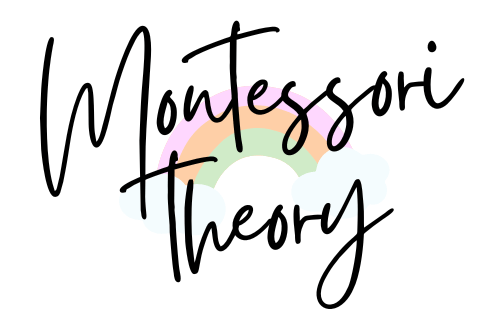The Montessori method, a revolutionary approach to education devised by Dr. Maria Montessori, has been shaping young minds for over a century. Parents who value child-centered learning often gravitate towards Montessori for its reputation in developing independent, thoughtful learners. However, any educational choice comes with its considerations, and Montessori is no exception. Parents pondering this route must weigh the acclaimed benefits against potential drawbacks and address common misconceptions.
In-Depth Look at Potential Drawbacks
Every educational method comes with its pros and cons, and the Montessori method is no exception. This section explores the potential drawbacks that families may face when opting for Montessori education, providing a balanced view of its implications.
Transitioning Between Educational Models
A significant concern for parents is how children accustomed to Montessori’s free-flowing, self-directed environment adjust to the more structured traditional school systems. The freedom to choose their learning path in Montessori education may not translate seamlessly into settings where curriculum and pace are set by the school. A detailed analysis in a study published in the Journal of Montessori Research highlights how Montessori education prepares students for such transitions by developing strong academic, social, and emotional skills. This foundation suggests Montessori-educated students are well-equipped for diverse learning environments, potentially easing the adjustment to traditional educational structures.
The Structure and Discipline Debate
Concerns about Montessori’s less structured approach often arise, with worries that it might not instill traditional discipline in students. However, research led by Dr. Adele Diamond provides compelling evidence to the contrary. Diamond’s study, published in 2012 in the Annual Review of Psychology demonstrates that Montessori education enhances executive functions essential for self-regulation and disciplined behavior. This indicates that Montessori’s focus on intrinsic motivation effectively prepares students for life’s challenges, contradicting concerns about the method’s discipline approach and affirming its capacity to develop disciplined, adaptable individuals.
This nuanced approach to discipline, emphasizing self-discovery and personal responsibility, fosters an environment where children learn to manage their behaviors and decisions effectively. Far from leaving students unprepared, the Montessori method equips them with a deeper understanding of self-discipline, arguably more aligned with the complexities of real-world functioning. The findings suggest that Montessori alumni may navigate life’s challenges with greater ease and resilience, turning potential drawbacks into lifelong strengths.
Financial Considerations
The cost of Montessori education is a significant consideration for many families. For the 2023-2024 school year, full-day tuition fees across various Montessori programs can range widely, from approximately $7,725 to $31,395 annually, depending on the age group and specific institution (see chart below). This expense, often surpassing that of traditional schools due to the need for specialized materials and highly trained teachers, can make Montessori education seem less accessible to a broader demographic.
The American Journal of Education has underscored the socioeconomic disparities inherent in educational choices, emphasizing the importance of expanding access to diverse educational models. Public Montessori programs, in particular, have shown potential in narrowing this accessibility gap, suggesting a promising avenue for making Montessori education available to a wider array of families.
| School Name | Location | Full-Day Tuition (Annual) | Full-Day Hours |
|---|---|---|---|
| Sammamish Montessori School | Redmond, WA | Toddler: $21,000
Primary: $20,000 Elementary: $19,500 – $25,000 |
Varies, typically 9AM to 3:15PM |
| Montessori Academy of Broward | Pembroke Pines, FL | Infants: $13,600
Toddlers: $12,300 Primary: $12,150 |
Full day up to 6:30PM |
| Montessori Day School | Brooklyn, NY | Toddlers: $31,395
Primary: $28,350 |
Full day up to 5:30PM |
| Enfield Montessori School | Enfield, CT | Toddler: $14,200
Primary: $7,725 Elementary: $7,725 |
Full day up to 5:00PM (Toddler), 2:30PM (Primary & Elementary) |
Confronting Misconceptions and Criticisms
The Montessori method, like any educational philosophy, is subject to misconceptions and criticisms that can cloud understanding and decision-making. In this part, we aim to clarify common misunderstandings and address the critiques often leveled against Montessori education, shedding light on its true principles and practices.
Debunking the ‘Too-Free’ Myth
A prevailing misconception among parents is that Montessori classrooms lack the structure found in traditional education, leading to an assumption of a lax atmosphere. However, Montessori’s flexibility is not synonymous with a lack of discipline. In fact, it’s predicated on a carefully balanced system of structured self-direction. This balance is essential, and Montessori classrooms are meticulously designed to support this equilibrium.
-
Classroom Environment
The classroom environment in Montessori schools is a thoughtfully structured space, where every detail from the arrangement of learning materials to the timing of daily activities is designed to facilitate a progression of learning experiences. This strategic setup encourages children to make decisions within a supportive framework, fostering their development. Research, including the study by Kay M. Alston published in Montessori Life, underscores the effectiveness of such environments in nurturing autonomy and order.
These settings are pivotal in teaching children self-regulation and decision-making skills. Further analysis reveals that Montessori environments, through their emphasis on independent learning and the development of critical life skills, contribute significantly to the cognitive, social, and emotional growth of students. Trained educators play a crucial role in guiding children through these learning processes, ensuring a comprehensive educational experience that prepares them for future challenges.
-
Behavioral Expectations
In Montessori classrooms, clear behavioral expectations are established, emphasizing mutual respect and community. Educators go beyond the role of facilitators, actively engaging in guiding each child’s social and moral development. By modeling positive behavior and utilizing positive reinforcement, they teach children the value of boundaries and the consequences of their actions. Research highlighted in the Journal of Montessori Research by Maruša Mavrič, underlines the significance of such guidance, which cultivates responsibility towards oneself and peers, a critical aspect of effective learning and socialization.
This approach aligns with personalized learning principles, highlighting the importance of adaptability and student choice in fostering an inclusive and supportive educational community. Through this individualized guidance, students not only learn academic subjects but also acquire vital life skills, such as empathy, cooperation, and conflict resolution, which are essential for their growth as responsible and aware individuals.
Academic Rigor Beyond Standardized Tests
Some parents question the academic rigor of Montessori due to its unconventional assessment methods. The enhanced understanding of Montessori’s academic rigor, as underscored by the study of Kevin Rathunde and Mihaly Csikszentmihalyi published in the American Journal of Education in 2005, highlights the method’s efficacy in fostering deep student engagement and intrinsic motivation. This foundational research illustrates that the Montessori approach, with its emphasis on self-directed learning and holistic development, significantly contributes to students’ academic successes beyond traditional testing metrics.
By creating an environment that encourages curiosity, autonomy, and a love for learning, Montessori education cultivates students who not only excel in academic subjects like reading and mathematics but also possess advanced social problem-solving skills. This comprehensive educational strategy underscores the importance of assessing student achievement through diverse and meaningful measures, challenging the narrow focus of standardized testing.
Research Substantiating Montessori’s Effectiveness
Montessori education has been the subject of various academic studies aimed at evaluating its impact on student outcomes. Among the most notable is the research conducted by Dr. Angeline Lillard, a renowned expert in the field of developmental psychology and Montessori education. In her 2006 study, published in the journal Science, Dr. Lillard examined the performance of children in public Montessori schools compared to their peers in traditional educational settings. The results were compelling, revealing that Montessori students significantly outperformed their non-Montessori counterparts in a variety of academic and social metrics. This landmark study provides strong empirical support for the Montessori method’s ability to accommodate diverse learning styles and foster not only academic excellence but also critical life skills such as independence, empathy, and creativity.
Further research has continued to explore the breadth of Montessori’s impact. A follow-up study by Lillard in 2017, also published in Frontiers in Psychology, delved deeper into the long-term effects of Montessori education, confirming its positive influence on both academic achievement and social development. Additionally, a comprehensive meta-analysis conducted by Justus J. Randolph and published in 2023 revealed that Montessori education consistently outperforms traditional models in both academic and non-academic realms. This analysis highlighted the method’s broad effectiveness, showcasing significant gains in general academic ability, language, mathematics, social skills, executive function, and creativity among Montessori students. Such extensive research underlines the adaptability of the Montessori approach, emphasizing its efficacy across various socioeconomic backgrounds and educational levels.
The comprehensive findings from Dr. Lillard, along with the robust evidence provided by the 2023 meta-analysis and other scholarly work, not only validate the Montessori method’s pedagogical principles but also underscore its vital role in preparing students for the challenges of the 21st century. By fostering a love for learning, encouraging self-direction, and prioritizing holistic development, Montessori education equips children with the tools they need for lifelong success.
Reflecting on Montessori for Your Child
When it comes to Montessori education, parents must consider a multitude of factors. It’s a decision that goes beyond academics, touching upon values, adaptability, and the development of the whole child. The Montessori method, with its focus on nurturing each child’s natural development, may be the ideal fit for families seeking an alternative to traditional educational models. Yet, it’s vital for parents to reflect on their child’s unique needs and how they align with Montessori’s principles. This compatibility between the student’s personality, learning pace, and family values is key to making an informed educational choice.




